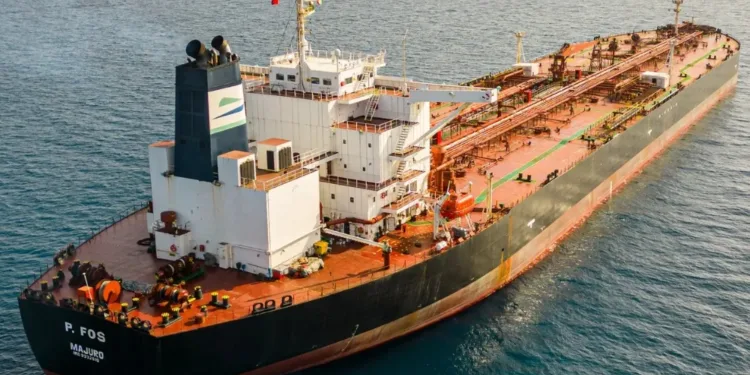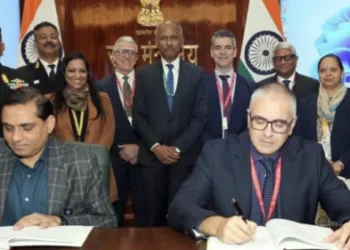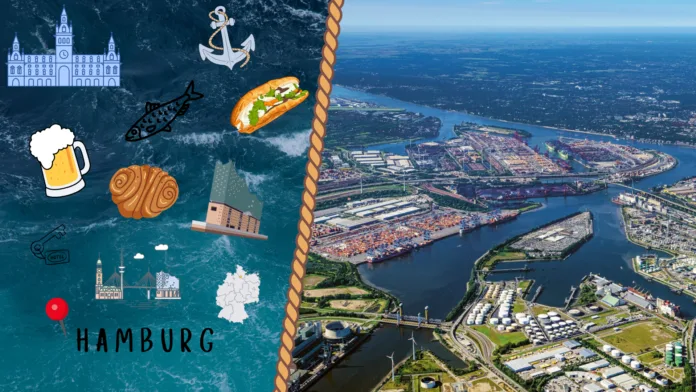French authorities have detained the captain and first mate of the Boracay, a shadow fleet tanker blacklisted by the European Union, amid suspicions it was involved in last week’s mysterious drone incursions over Denmark.
The pair were taken into custody after French naval forces boarded the 244 m long, Benin-flagged aframax off Saint-Nazaire over the weekend, Brest prosecutor Stephane Kellenberger confirmed. The arrests follow an investigation into the crew’s “failure to justify the nationality of the vessel” and “refusal to cooperate”.
President Emmanuel Macron, speaking at an EU leaders’ summit in Copenhagen, stressed the seriousness of the case. “There were some very serious offences committed by this crew, which justify the current judicial procedure,” Macron said. He cautioned, however, against rushing to link the ship directly to drone flights that disrupted Danish airports and military sites from September 22 to 25. “I will remain very careful, as it is not for me to establish such a connection,” the French president added.
The Boracay — formerly known as Pushpa and Kiwala — has been under EU and UK sanctions since February for its role in Russia’s clandestine oil export network. The vessel, carrying Urals crude to Asia, left Primorsk on September 20 bound for Vadinar, India, according to AIS data.
Danish authorities identified the Boracay as one of three vessels potentially used to launch or support drone operations that temporarily shut Copenhagen airport. On the evening of September 22, when drones forced the closure, the tanker was within 70 nautical miles of the Danish capital. Hours earlier it had switched flags from Malawi to Benin and changed its name from Pushpa — part of a pattern of rapid ownership, name and flag changes that have become hallmarks of Russia’s so-called dark fleet.
Built in 2007, the Boracay has cycled through four registered owners, five names and seven flags in the past three years, according to data from Windward, a maritime analytics company.



















